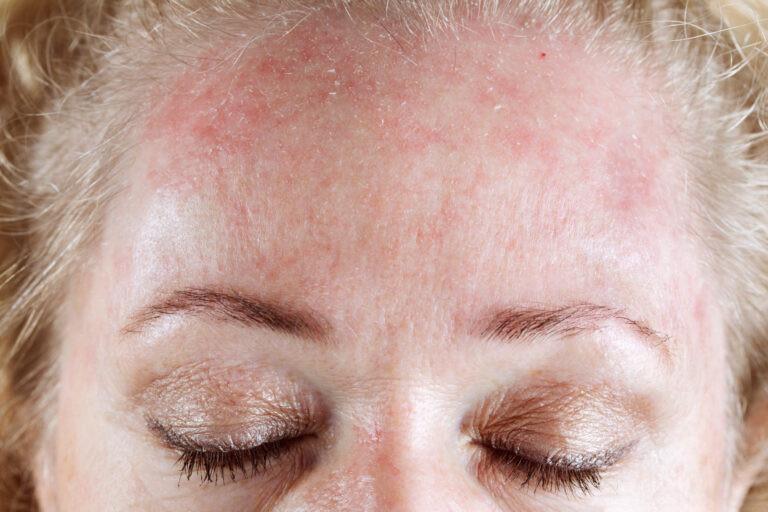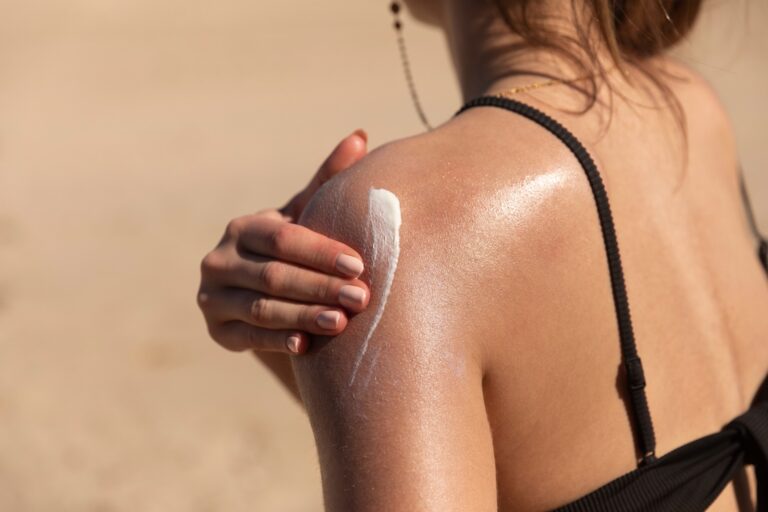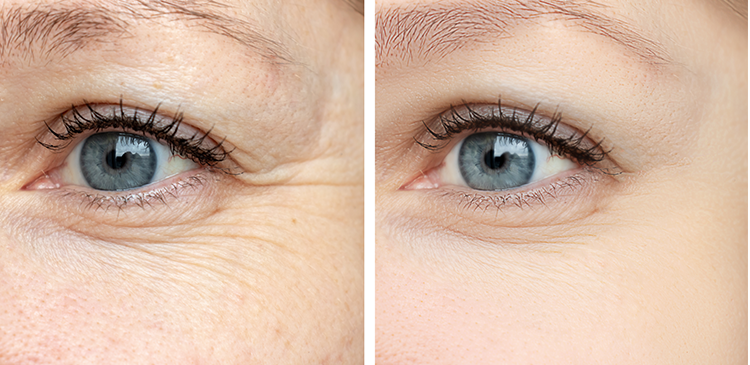Get Rid of Those Dark, Puffy Circles Under Your Eyes
Those unattractive dark circles and puffy eyes can happen for many different reasons everything to genetics to allergies, stress, or fatigue. Despite over-hyped “color-correcting” creams, eye rollers, or night serum treatments that promise to cure tired-looking eyes, they typically do so superficially by masking the appearance of the dark, puffy circles. The hard truth is that diminishing dark circles and reducing puffy eyes are best accomplished with some healthy lifestyle changes along with the consistent use of a simple, nourishing skin care program.
Delicate Skin Around the Eyes
The skin around the eyes is the thinnest skin on the face. Since the blood in our veins is blue until it is oxidized, when it’s flowing beneath thin (sometimes transparent) skin, blue hues can appear as a dark region on the skin. Dark under eye circles can also be exaggerated by bone structure. If you have deep-set eyes, shadows cast by the structure of your face may increase the appearance of bags under your eyes. This thin and delicate skin also means that its susceptible to irritation and swelling that may occur for a number of reasons.
X-Factors
There are many different factors that influence the look of dark under eye circles and eye puffiness, some which are possible to minimize, and others that just require a little acceptance. Some of the main causes are:
- Fatigue: Yes, lack of beauty sleep is actually a major cause of pesky, dark under eye bags; however, it is by no means the only factor. Sleep contributes to our overall health, so make sure to catch the right amount of Z’s to feel energized, but not too much that you feel lethargic. Swelling around the eyes can be caused by sleep deprivation as well as getting too much sleep. Its important to note that, even if you think you’ve slept enough hours, if you are unknowingly being disturbed during your sleep (due to conditions like sleep apnea), excess alcohol consumption, for example, poor quality of sleep, despite the hours of sleep, can have long term cumulative effects on your health and the well-being of your skin.
- Allergies: Seasonal or other allergies can cause discoloration, irritation, water retention, and swelling of the eye area.
- Rubbing your eyes: Rubbing, scratching, or applying products roughly can irritate the delicate skin around your eyes, cause mild swelling, and even break capillaries.
- Dermatitis: Contact dermatitis or atopic dermatitis (eczema) can cause eye puffiness due to the irritation and inflammation associated with each of them.
- Heredity: Unfortunately, if dark under eye circles run in your family, you’re quite likely to get them as well. If this is true for your tired-looking eyes, you may find them difficult to treat, so try not to be too hard on yourself.
- Diet: A diet that is high in salt will cause you to retain more water and can cause puffiness around the eyes. And if your diet is lacking in essential nutrients or vitamins, your skin may become thinner and translucent, making dark under eye circles more noticeable.
- Thinning skin and loss of collagen: As we age, the skin thins and collagen depletes. This makes the veins and vessels under your eyes more visible. While collagen supplementation or increased consumption of meals rich in collagen in your diet may be helpful, they typically take its natural time to gradually see their effects. Gentle, regular exfoliation is also known to help rebuild collagen.
- Prescription medications: If you’re taking certain medications such as vasodilators which widen veins to improve blood flow, you may have noticed that circles under your eyes appear darken than usual.
- Other factors include: pigment irregularities, illness, alcohol consumption, tobacco use, menstruation, and crying.

Prevention
- Make sure to get enough sleep
- Treat any allergies
- Don’t rub your eyes
- Exercise regularly to help regulate fluids
- Adopt a nutrient-rich diet that is low in sodium and processed food ingredients
- Follow a skincare routine that uses skin care products that helps your skin build collagen through gentle exfoliation and nourishment, especially Vitamins A, C, E, and K
Maintaining a healthy diet and lifestyle and getting the right amount of sleep should be your primary measures of defense against tired-looking eyes. Twice-daily use of skin care products that are enriched with vitamins, amino acids, and antioxidants should also be incorporated for ongoing minimization of puffy, dark eye bags. Vitamins A, C, and E are especially effective, and can help supplement the skin and stimulate collagen synthesis in the cells to prevent thinning skin, minor swelling, and dark circles. Vitamin K will also help reduce discoloration around the eyes.
Tip: If you already have a great nourishment and vitamin-rich daily moisturizer, apply an excess of it around the eye while you sleep to up the vitamins and nutrients in that area.
Additional measures to reduce eye puffiness include limiting sodium intake which will minimize water retention and also using an extra pillow when you sleep which will prevent a buildup of fluid. A simple cold compress will also help to reduce eye swelling and a damp washcloth applied gently will do the trick. Some people apply black tea bags (steeped and chilled) to their eyes, however, keep in mind that tea could irritate your skin or even get in your eyes which could sting. Instead, you may want to opt for simple slices of cold cucumber which is an effective, non-irritating, cheap, and mess-free option.
Lighten Up
Following these instructions should help minimize any occurrence of tired-looking eyes, especially over time and with consistency. But remember, with so many factors that contribute to puffy eyes and dark circles (both preventable and unpreventable), it’s also important to accept yourself and your appearance, especially if you’re healthy and any blemishes are only cosmetic.







